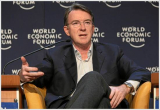
Slovaks are participating in early elections after the former center-right government's collapse.
Leading most polls is the populist SMER party, led by Robert Fico, who has pledged an immediate halt to Slovak military support for Ukraine.
Fico had to step down as prime minister following the murder of investigative journalist Jan Kuciak in 2018.
"If SMER gains power, we won't send any ammunition to Ukraine," he recently stated to his supporters.
This threat has raised concerns in Western capitals as they assess NATO and EU unity for potential divisions. It echoes the rhetoric of Slovakia's NATO neighbor, Hungary, which advocates diplomacy for peace.
However, some see Fico's threat as a diversionary tactic.
Bratislava has been a loyal ally, providing Kyiv with surface-to-air missiles, helicopters, and even donating its retired MiG-29 fighter jets. But now, there's little left to offer.
"The cupboard's bare," one Western official told the BBC.
Only commercial contracts for heavy weapons, including self-propelled howitzers ordered by Ukraine and its Western allies, remain. These contracts involve mostly state-owned defense companies, and a Fico government could theoretically intervene.
But these contracts also provide jobs for Slovaks and revenue for the Slovak state, making it unlikely that Fico would jeopardize them, according to the official.
SMER declined requests for an interview, but party MP Lubos Blaha spoke to the BBC this summer, expressing views reminiscent of Moscow rather than Bratislava.
"We need to stop this war—at any cost," said Mr. Blaha.
"I can understand that Ukrainians wouldn't be happy that they will lose, for example, Donbas or Crimea. But still, we need to be realistic," Mr. Blaha added, describing the conflict as a "proxy war of the United States against Russia on Ukrainian land."
In contrast, Progressive Slovakia, a liberal, pro-Western party neck-and-neck with SMER in polls, promises to continue providing military aid to Ukraine.
Tomas Valasek, the party's deputy leader and a former ambassador to NATO, expressed concerns that Fico is following the playbook of Hungarian leader Viktor Orban. Valasek pointed out that ex-Prime Minister Fico's re-election might lead to Slovakia's exclusion from NATO, akin to Slovakia's past under Vladimir Meciar.
Progressive Slovakia envisions an open, tolerant, cosmopolitan society, while SMER campaigns on stability, order, and social security.
Beata Balogova, editor-in-chief of the daily newspaper SME, cautioned against assuming that Fico the populist would transform into Fico the pragmatist once in office.
"Right now Robert Fico doesn't have a better version of himself. Right now, he has to keep feeding his electorate. For this electorate, you have to defeat someone every day," she said.
Slovakia faces the possibility of a complex coalition-building process, as polls suggest there could be up to 10 parties in the new parliament.
As Slovakia navigates these political waters, it grapples with the war in Ukraine and the challenges it poses to its identity as a bridge between East and West.
Some fear that Robert Fico could pull Slovakia back into Moscow's orbit, given his party's rhetoric aligning with the sentiments of a significant portion of the Slovak population regarding the war and international politics. Photo by MGlen, Wikimedia commons.








































